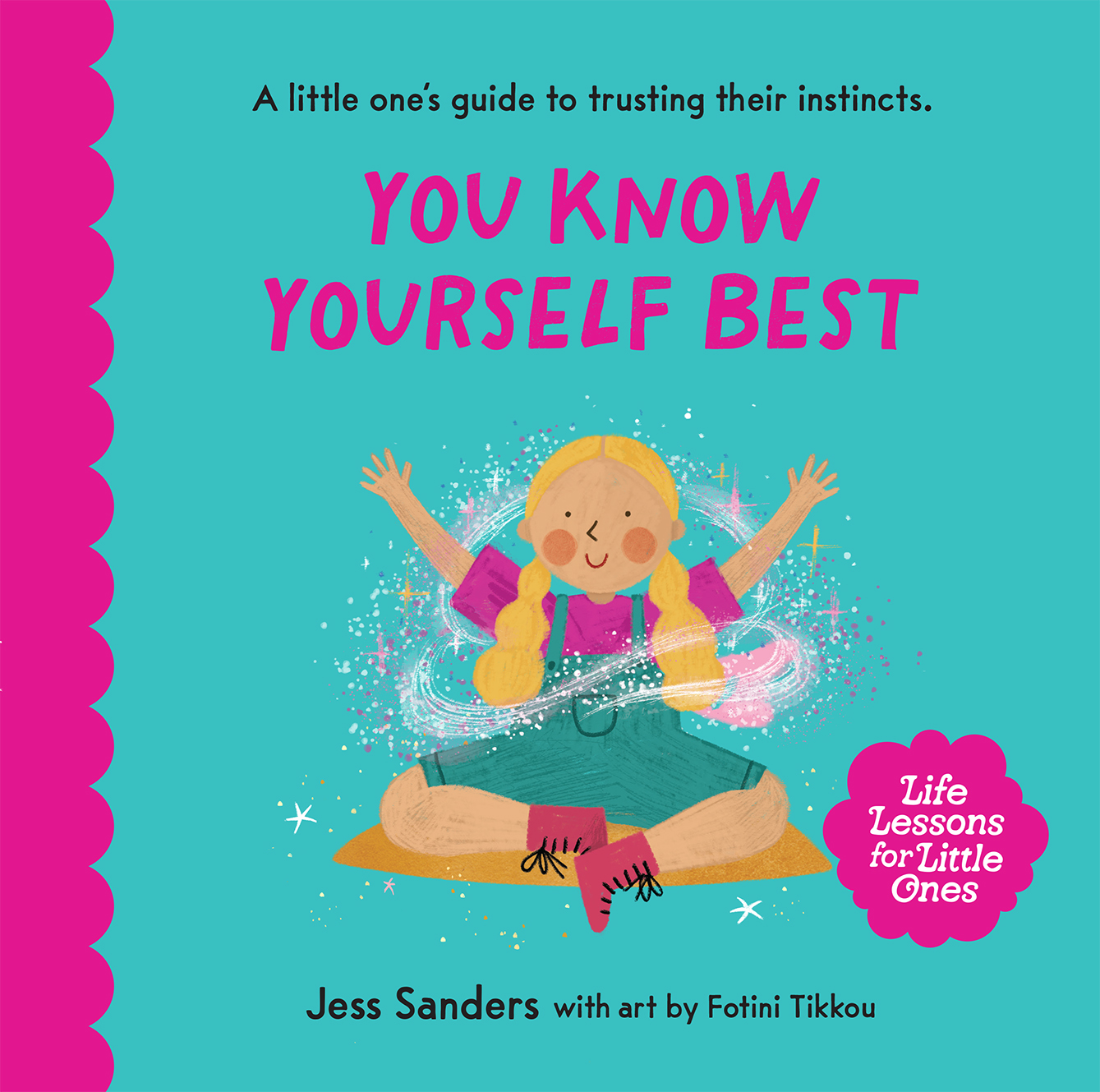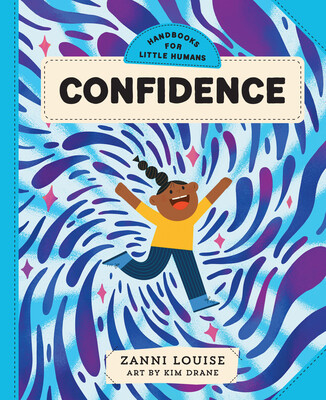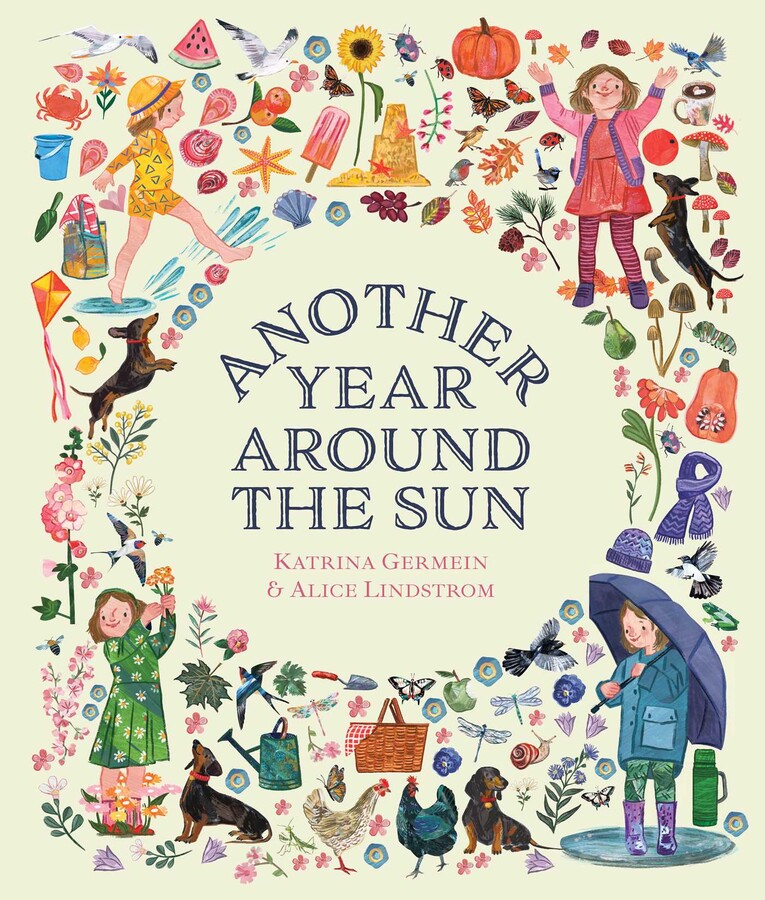
Life Lessons for Little Ones: You Know Yourself Best
A little one’s guide to trusting their instincts
By Jess Sanders & Fotini Tikkou
Reviewed by Claire Monsour
 “Dear Reader, you are the expert of you. You know when something feels good and right, and you know when something feels wrong. What you feel is important. I wrote this book to encourage you to sue your voice and ask for what you need. No one else knows you like you do – you know yourself best. Your friend, Jess”
“Dear Reader, you are the expert of you. You know when something feels good and right, and you know when something feels wrong. What you feel is important. I wrote this book to encourage you to sue your voice and ask for what you need. No one else knows you like you do – you know yourself best. Your friend, Jess”
The opening message in You Know Yourself Best: a little one’s guide to trusting their instincts sets up this book for any child who needs a reminder or further guidance on how to listen to their body. Author Jess Sanders is a social worker specializing in supporting young people, with a passion for creating resources that nurture positive mental health. In this latest book in her new series Life Lessons for Little Ones*, Jess has created a discussion tool for parents and children to explore and understand the language of their bodies, and learn to trust their instincts. The book speaks directly to the reader, with clear language that explains how our bodies “speak” to us about various needs, desires, and cautions, and how this can be in different ways for different people. The story describes different body feelings, as well as examples of what to do and what to ask when it’s hard to understand what our body is saying. These clear and practical ideas are a great starting point for parents to guide young children in understanding and trusting their gut feelings.
Artist Fotini Tikkou has delivered beautiful and functional illustrations that really support the message of the book. Tikkou’s clever use of light or dark swirls around the characters acts as a wonderful visual metaphor to support the positive and negative body signals described on each page. The drawings are simple enough so they don’t distract from the book’s text, but are also artful in a way that clearly express different emotions, characters, and situations from a young child’s perspective. I particularly liked how the “person you don’t trust” is only seen from the neck down, and the movement that is tangible in the colourful emotional swirls on each page.
Sander’s carefully choses language to clearly explain a complex topic. The central focus could be a little more refined, as the story discusses feelings such as wanting to dance directly alongside gut instincts to refuse a hug from an adult you don’t trust. The intent of the book becomes a little blurred with the range of body feelings explored; understanding a feeling such as wanting to dance (the “instinct” to move) is different to emotions such as being worried about school or scared of rough kids (the “instinct” to stay away), and is also in high contrast to advocating your body autonomy (the “instinct” of self-protection). The book sets itself up as an informative text on instincts, but this ends up being revealed as a much larger topic than perhaps can be covered in a 20-page picture book.
Didactic children’s books are certainly in a prolific stage, with many picture books using instructional literature to appeal to overwhelmed parents, busy teachers, and young children faced with a confusing and changing world culture. It’s common now to see the book shelves of popular stores filled with traditional picture book stories and an almost equal number of books designed as teaching tools for how to love yourself, embrace the differences between us, and shape a generation of tolerance and acceptance.
While there is of course a place for this type of literature, it is worth keeping in mind that they serve a different purpose than more traditional children’s stories with a moral embedded within a tale. In a more traditional children’s book, the reader is driven through an emotional journey and is guided to understand a lesson from the experience and relation to their own principles. The language requirements are more complex (requiring relating, inference, and comprehension of other’s point of view), but the stories are enjoyed over multiple readings and can reveal alternate experiences at different ages. A more didactic text explores a topic in more simplistic and direct terms, with the purpose to inform and teach. They can be entertaining and enjoyable, but don’t always lend themselves to multiple readings.
The ‘Life Lessons for Little Ones’ series is proving both popular and functional, with author Jess Sanders drawing on her professional knowledge and personal expertise relating to young children. In the current sea of didactic picture books, it is a text that will serve educators, teachers, and parents well in supporting young children to understand instincts.
*Other titles in this series incude You Are Enough, 2022, You’ve Got This! 2023, Your Softness is Your Strength 2023, You Can Do Hard Things 2024, and Your Body is Amazing (due for release early 2025
Ages 3-6
Affirm Press 2024






